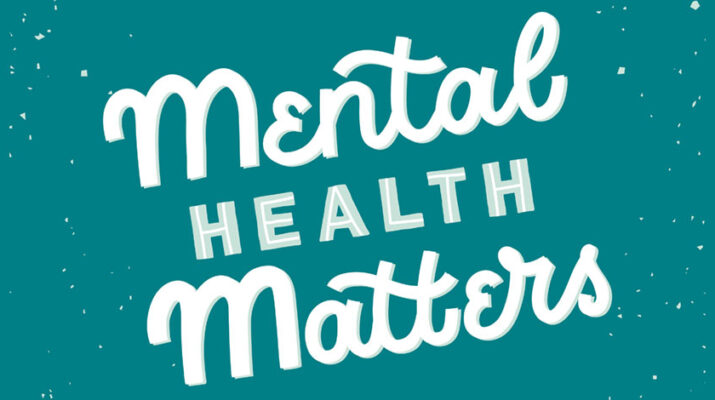By Deborah Jeanne Sergeant

Little daily habits can add up in big ways. For example, eating a big lunch can result in gained weight because of excess calories. Or, on a positive note, going for a daily walk can cause weight loss because of burned calories.
Mental healthcare is similar.
Instilling good daily habits can also contribute to good mental health.
Ann Altoonian, a licensed psychologist sees clients in Rochester and Syracuse, said that staying grounded can increase the likelihood of good mental health. She encourages meditation, mindfulness, and yoga that requires some learning.
“Luckily, there are what seems like an infinite number of courses, classes, books, websites and apps to guide people in these practices,” said Altoonian, who holds a doctorate in psychology. “Other techniques can be done immediately upon reading them. One is the ‘5-4-3-2-1’ grounding exercise, where working backward from 5, you use your senses to list things you notice around you — five things you hear, four things you see, three things you can touch or feel, two things you can smell, one thing you can taste.
“Another is if you are able, take a short walk, concentrating on your steps, even by counting them. Notice the rhythm of your footsteps; how it feels to put your foot on the ground and then lift it again.”
These techniques help you stay present instead of longing for the past or worrying about the future. Neither of the latter is healthy.
Gratitude can also help turn thoughts toward the positive side of life. Carl Christensen, licensed clinical social worker with North Coast Counseling in Rochester, said that it’s as simple as “counting your blessings, the things that make you happy and give you satisfaction.”
It can be as simple as feeling thankful for the view outside your window or as important as a healthy body.
Another way of staying positive is doing something for someone else. Despite the limitations of the pandemic, Christensen said, “there are still things we can do to benefit others.”
Contributing shelf stable goods to a food pantry, donating gently used clothing to a shelter or dropping off groceries to an elderly person could all represent ways to think of others.
If unwanted feelings begin manifesting, it is important to identify them correctly with the help of mental health services. Nicki Ditch, licensed mental health counselor at In Truth Mental Health Counseling Services in Rochester, said that not every unwanted feeling equals depression. A mental health counseling can help you gather your thoughts. For a more in-depth intervention, you may consider psychiatric rehabilitation services.
“Depression isn’t the same thing as sadness, rejection, grief, embarrassment or abandonment,” she said. “Try to identify what you feel. Labeling it ‘depression’ may keep us in a depressed state. Depression is a mindset and once we’re in that mindset, why wouldn’t we be upset?”
She encourages self-care, such as obtaining regular and sufficient sleeping, eating a healthful diet and engaging in regular physical activity. For professional mental health intervention, a psychologist or psychiatrist may be consulted.
“When I push my body beyond its limits, I’m not at my best,” Ditch said. “I didn’t realize this until the quarantine, which showed me how much I need rest. I was hard to quarantine, but it made a whole lot of people just settle down and get some rest.”
She also said that the same applies to food for many people, since spending more time at home has allowed them to engage in cooking more nourishing, wholesome foods instead of grabbing what is fast and often unhealthful.
Self-care can also mean listening to uplifting music, taking time to set daily goals, and staying away from social media, since the difference between the posted life and real life is so different. For example, the post showcasing the perfectly decorated home, gourmet meals and well-behaved children looks like an impossible ideal to emulate. But those viewing the website don’t see the online household’s messes, kitchen mishaps and squabbles.
“Sometimes I wish people would post the things we ‘shouldn’t’ post, like, ‘Today I dropped something on the floor and left it because I was too lazy to pick it up,’” she said. “Something revealing about the other side of us.”
Of course, daily mental health practices cannot replace professional help when that is what is needed.
Ditch said to reach out for help should you notice that for two weeks or longer, you’re avoiding contacting others, performing routine personal care or dropping formerly enjoyed interests for no reason. Anyone experiencing suicidal thoughts or thinking no one would care if they died should seek professional help, as should those abusing alcohol, using drugs or misusing prescription medication.
“Depression is a state we can put ourselves in and keep ourselves in,” Ditch said. “If we can openly talk about it, it stands less of a chance.”

